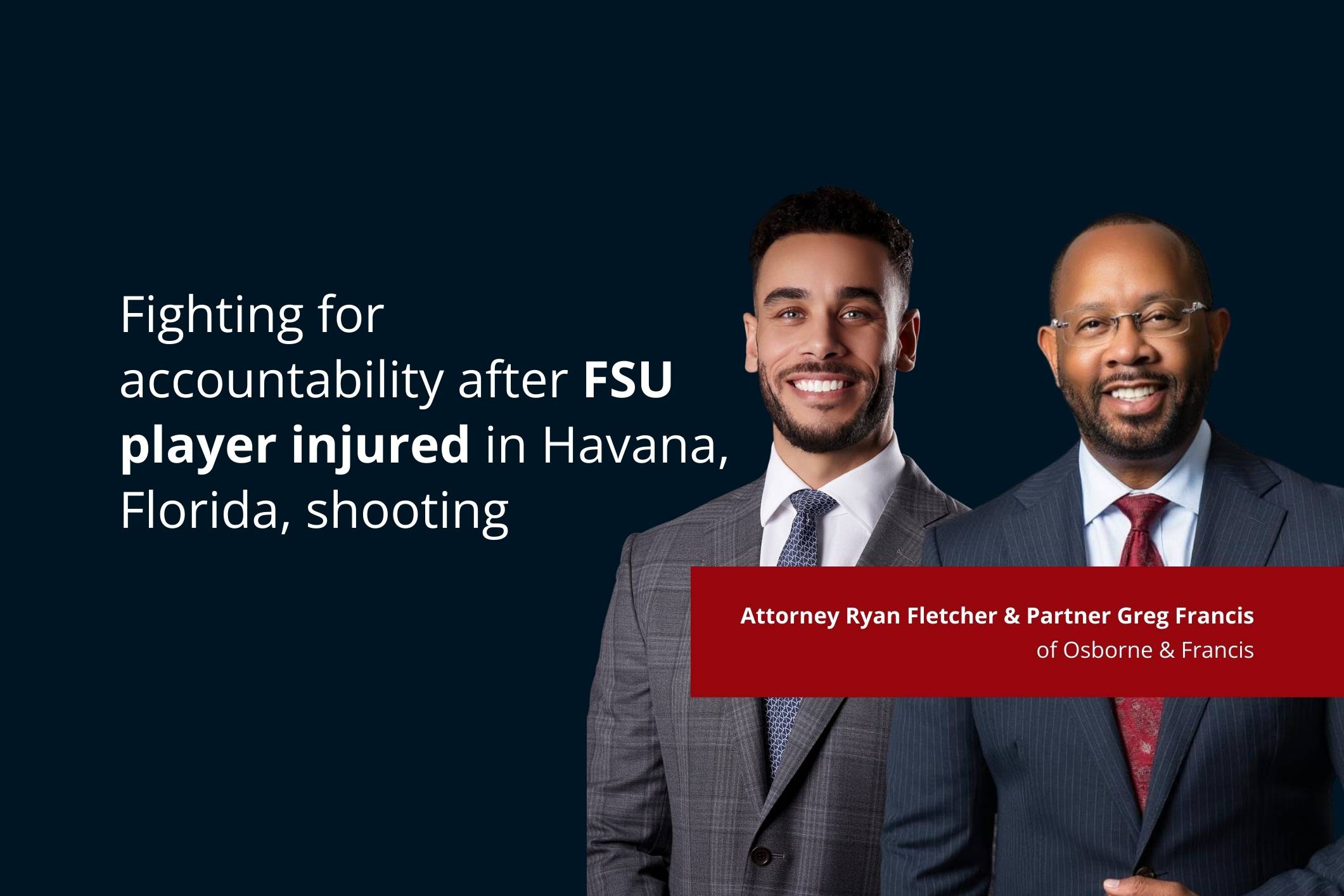Medical malpractice cases can be challenging to win due to the complex nature of the healthcare system and the high burden of proof required. But the attorneys with Osborne & Francis are up to the challenge. We’ve helped our medical malpractice clients obtain millions of dollars in compensation, and we’re ready to help you obtain every penny you deserve.
Schedule a free consultation by contacting us online or calling (561) 725-9572.
Determining if Your Medical Malpractice Case Has Merit
If you have reason to believe you’re the victim of medical malpractice, you must contact a lawyer as soon as possible. An attorney will first evaluate whether the healthcare provider's negligence caused harm. They’ll review the details of your case, collect relevant medical records, consult with medical experts, and assess the strength of your claim. They’ll help you understand the legal standards and requirements necessary to pursue a successful lawsuit.
Analyzing the Healthcare Provider's Negligence
Proving medical malpractice requires demonstrating that the healthcare provider breached their duty of care. Breach of duty of care means your provider failed to uphold their duty to treat you to the standard of care expected from medical professionals.
To establish negligence, it’s often necessary to rely on expert testimony from medical professionals who can evaluate the provider's actions and determine if they deviated from the expected standard of care. An attorney will conduct a comprehensive review of medical records, treatment plans, and other relevant evidence to gather a complete understanding of the circumstances surrounding the case.
Proving that the Healthcare Provider Acted Unreasonably
Winning a medical malpractice case also means proving that the healthcare provider's actions were unreasonable or fell far below the standard of care. This can be challenging due to the variability in medical practices and interpretations. What may be considered reasonable by one healthcare professional may differ from the perspective of another.
Expert witnesses are crucial in establishing what should have been done differently in the given circumstances. These experts provide opinions based on their experience and knowledge to help the court understand the expected standard of care in a particular medical situation.
Medical Negligence is Hard to Prove and Expensive
Medical malpractice cases are complex and often require substantial resources. Building a solid case involves extensive investigation, expert opinions, and thorough preparation. Gathering evidence, reviewing medical records, conducting interviews, and consulting with expert witnesses contribute to the substantial costs of pursuing a medical malpractice claim.
The expenses of obtaining expert opinions, conducting depositions, and preparing for trial can also be significant. But the medical malpractice attorneys with Osborne & Francis work on a contingency fee basis. This means we only receive payment if we win the case.
How Osborne & Francis Can Help You
Enlisting the assistance of a skilled medical malpractice attorney is crucial in navigating the complexities involved with these cases. At Osborne & Francis, our lawyers have the expertise to evaluate your case and develop a compelling legal strategy. We can also provide guidance and support throughout the litigation process.
Types of Medical Malpractice Cases We Handle
Medical malpractice can occur in many different ways. Some common types of medical malpractice cases our law firm handles include the following:
Birth Injury
Birth injuries can result from negligence during pregnancy, labor, or delivery. This kind of negligence often leads to severe harm or injury to the baby or mother. Examples of birth injuries include:
Negligence may arise from improper use of delivery tools, failure to monitor the baby's vital signs, delays in performing necessary interventions, or medication errors during labor and delivery.
Hospital Negligence
Hospital negligence refers to failures in hospital protocols, staffing, or emergency response that result in harm to patients. This can include inadequate supervision of medical staff, insufficient training, errors in medication administration, unsanitary conditions, inadequate monitoring equipment, or failures in responding to emergencies promptly. Hospital negligence can have severe consequences, including infections, medication errors, surgical mistakes, or delays in emergency care.
Physician Errors
Physician errors occur when doctors make mistakes during diagnosis, treatment, or surgery, resulting in harm to patients. Examples include misdiagnosis or failure to diagnose a condition, incorrect treatment plans, and medication, surgical, or anesthesia errors. Physician errors can devastate a patient’s health, leading to worsened conditions, unnecessary procedures, or even life-threatening consequences.
Physician Assistant Errors
Doctors aren’t the only ones who can commit malpractice. Physician assistants play a vital role in patient care, but errors can occur due to inadequate supervision, lack of experience, or poor judgment, potentially leading to patient harm. Errors assistants make include misdiagnosis, failure to recognize symptoms, prescribing incorrect medications, or providing improper treatment.
Clinic Malpractice
Clinic malpractice is negligence in outpatient clinics or medical facilities that harm patients. These are just a few examples::
- Improper administration of medications
- Inadequate sterilization of equipment
- Misinterpretation of test results
- Failure to obtain informed consent
- Errors in performing medical procedures
Failure to Diagnose
Failure to diagnose happens when a healthcare provider fails to correctly diagnose a patient's condition, leading to delayed or inadequate treatment. This can result from misinterpretation of test results, inadequate testing, failure to order necessary tests, or overlooking key symptoms. Failure to diagnose can have serious consequences, as delayed treatment may allow the condition to worsen, leading to complications or reduced chances of recovery.
Neonatal ICU Error
Neonatal ICU errors occur when mistakes or negligence in the neonatal intensive care unit (NICU) cause harm to newborns. This can include medication errors (more on these below), failure to monitor vital signs, improper use of medical devices, inadequate infection control measures, or errors in administering nutrition. Mistakes in the NICU can have significant and long-lasting effects on newborns, including brain damage, developmental delays, infections, or other complications.
Medication Errors
Medication errors involve mistakes in prescribing, administering, or monitoring medications, leading to patient harm. Examples include:
- Prescribing the wrong medication or dosage
- Mislabeling medications
- Administering the wrong medication to a patient
- Failing to monitor for potential drug interactions or adverse effects.
Medication errors can lead to severe consequences, including allergic reactions, organ damage, or even death.
Surgical Errors
Surgical errors occur when mistakes occur during surgical procedures, such as wrong-site surgery, damage to adjacent organs, leaving a surgical tool or sponge inside the patient, or anesthesia errors. These errors can result from miscommunication, inadequate pre-operative planning, fatigue, or inattention during the procedure. Surgical errors can cause severe complications, prolonged recovery, additional surgeries, or permanent damage to the patient's health.
Contact us to Speak with an Experienced Attorney ASAP
If you believe you’ve been a victim of medical malpractice, contact Osborne & Francis. You’ll work with a skilled attorney who will do everything possible to help you obtain maximum compensation. Use our online form or call (561) 725-9572 for a free case review.
.avif)













.avif)

.avif)
.svg)




